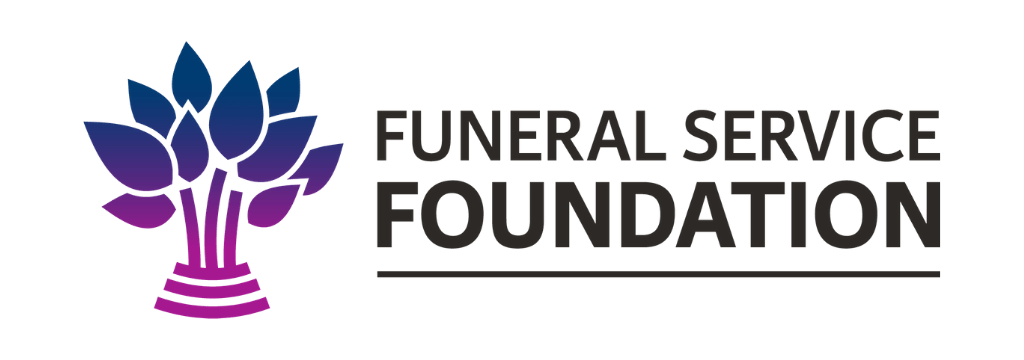How You Can Support Survivors of Suicide Loss
September is Suicide Prevention Month—a time to bring awareness to this stigmatized topic. Talking about suicide can be uncomfortable, and sometimes we keep quiet just because we don’t know what to say. While we don’t all feel like we have the authority to speak on the topic, we can all spread hope and share vital information with people affected by suicide. Deathcare professionals can play a crucial role in helping survivors of suicide loss in the immediate aftermath throughout the grieving process.
Stay educated
There is no single cause for suicide; rather, it’s a complex combination of ongoing pain that contributes to taking one’s own life. It is often the result of untreated mental health issues and suicidal thoughts. Much like mental health conditions, suicidal thoughts can affect anyone regardless of age, gender, or background.
According to the National Alliance on Mental Health (NAMI),
- 1 in 5 U.S. adults experience mental illness each year,
- 1 in 20 U.S. adults experience serious mental illness each year,
- 1 in 6 U.S. youth aged 6-17 experience a mental health disorder each year, and
- 50% of all lifetime mental illness begins by age 14, and 75% by age 24.
So, it is vital to advocate for mental health—we can all support treatment, therapy, and individuals who may be struggling.
Supporting survivors of suicide loss
Understanding the feelings of people who have lost loved ones to suicide, also known as suicide loss survivors, can prepare funeral directors to help the people they serve.
According to the Education Development Center, Inc., and Samaritans, Inc., some responses of suicide loss survivors include:
Anger
This response is not always the case, but the feeling of abandonment a survivor of loss may experience could lead to anger. As grappling with anger is an unpredictable process, a survivor’s anger could be unintentionally aimed toward funeral directors. Understanding the source of this anger can improve your empathetic response and allow the survivor to express their anger in a safe, judgment-free environment.
Self-blame
Many survivors might be asking the question “why?” Why did their loved one choose to end their life? Funeral directors will not be able to answer this question. And that’s okay. It is not a funeral director’s job to have all the answers, but to provide a comforting place for the bereaved to explore their grief.
Shame
The shame that may follow the loss of a loved one to suicide may be inflicted on the survivor by others. Suicide can cause a rift within religious communities potentially barring religious services be held for those who took their own life. As with any bereaved person, funeral directors should engage with survivors of suicide loss in the most caring way possible. Once again, the best way to do this is to refrain from judging.
Self-isolation
Feeling misunderstood could lead one to self-isolate. As stated in Supporting Survivors of Suicide Loss: A Guide for Funeral Directors (2020), “Funeral directors can encourage connection with others by encouraging and facilitating the communal grieving….They can also refer suicide loss survivors to support groups and other community-based services where those who are grieving can feel a sense of belonging and acceptance as a suicide loss survivor” (9).
Trauma
For survivors of suicide loss who witnessed a suicide or found the body of their loved one, some aspects of funeral planning can bring back traumatic memories. As stated in Supporting Survivors of Suicide Loss: A Guide for Funeral Directors (2020), “the key to helping people who have been traumatized is to go slowly, maximize the choices the bereaved have, and prepare people for what to expect” (9). Special care should be taken if they’re going to have to see the body again; the conversation about a closed or open casket should be approached slowly.
Relief
Some people whose loved ones struggled for a long time with internal pain may feel some relief after the suicide. This feeling of relief can give way to guilt and shame.
In this situation, empathetic listening and using phrases such as “it is understandable that you feel this way” can help survivors voice and work through this complicated response.
Denial
Denial can be part of any grief journey, but it may become more nuanced when someone loses a loved one to suicide. It’s not always clear if the death of their loved one was actually a suicide—a car accident or an overdose, for example. This uncertainty can leave a survivor feeling extremely confused or unsettled. Denial can occur even when a coroner has ruled the death a suicide, as a survivor may have difficulty accepting the reality of a loved one taking their own life. Or, denial can stem from viewing suicide as a sin. It is not the funeral director’s role to lead a suicide loss survivor to one conclusion or the other, but to create a safe space for a survivor to come to terms with the reality of death in their own time.
Suicidality
It is common for suicide loss survivors to express that they wish to be dead themselves. If you are in doubt about someone’s intentions or safety, you can ask them directly:
- “Are you thinking of suicide?”
- “How strong are those feelings?”
- “How close have you come to acting on them?”
As recommended by the Suicide Prevention Resource Center at EDC and the Suicide Prevention Action Network USA, The following three behaviors should prompt you to immediately call the 988 Suicide and Crisis Lifeline at 988 or mental health professional.
- Talking about wanting to die or to kill oneself
- Looking for a way to kill oneself, such as searching online or obtaining a gun
- Talking about feeling hopeless or having no reason to live
How to help your employees and coworkers by recognizing suicidal behavior
You can help your employees and coworkers both proactively and reactively. Proactively, knowing the warning signs of suicidal behavior can help you intervene in the safest way possible. According to the National Alliance on Mental Illness, warning signs include, but are not limited to:
- Increased alcohol and/or drug use
- Aggressive behavior
- Withdrawal from friends, family, and community
- Dramatic mood swings
- Impulsive or reckless behavior
- Collecting and saving pills or buying a weapon
- Giving away possessions
- Organizing personal affairs like paying off debts
- Saying goodbye to friends and family
If you, a coworker, or a loved one starts taking these steps, seek immediate help from a health care provider or call 988 Suicide & Crisis Lifeline.
Supporting someone in a crisis
If you are in a position in which you are supporting someone in a crisis you can talk openly and honestly.
- Don’t be afraid to ask questions such as, “Have you had thoughts of ending your life?”
- Calmly ask simple and direct questions like, “Can I help you call your psychiatrist?”
- Remove means that could be harmful
- Don’t argue, threaten, or raise your voice
- Don’t debate whether suicide is right or wrong
In a pressured situation, express support and concern and be patient with the one you are supporting.
Some parting words
A death by suicide may take an emotional toll not only on loss survivors but funeral directors and staff. And sometimes emotional burnout will occur. It is important to take time with yourself. As always, be kind to yourself. Taking care of your own mental health will help you stay present, compassionate, and whole. Share your stressful situations with those you trust and make time for non-work activities that bring you joy. In the words of the NAMI, “we can all benefit from honest conversations about mental health conditions and suicide because just one conversation can change a life.”
More Resources
**The suicide prevention hotline (988 Suicide & Crisis Lifeline) has changed its number to 988!
NFDA Suicide Prevention Awareness Month
A Guide for Funeral Directors: Supporting Survivors of Suicide Loss
Difficult Conversations: A guide for funeral directors addressing deaths by suicide




